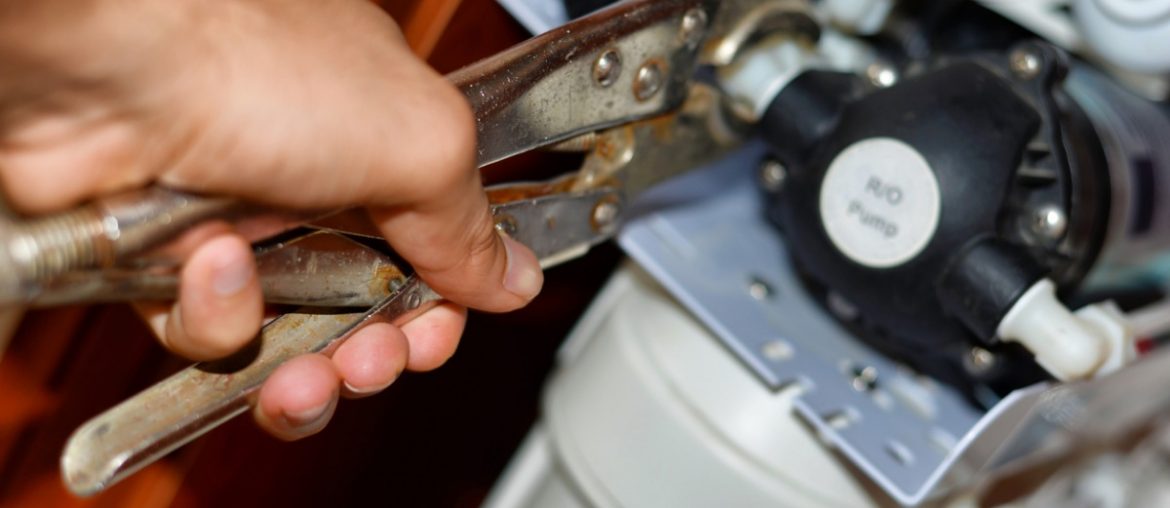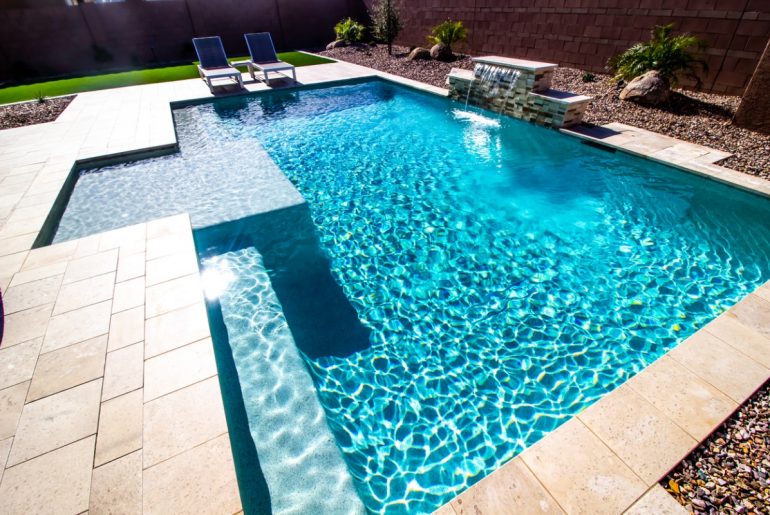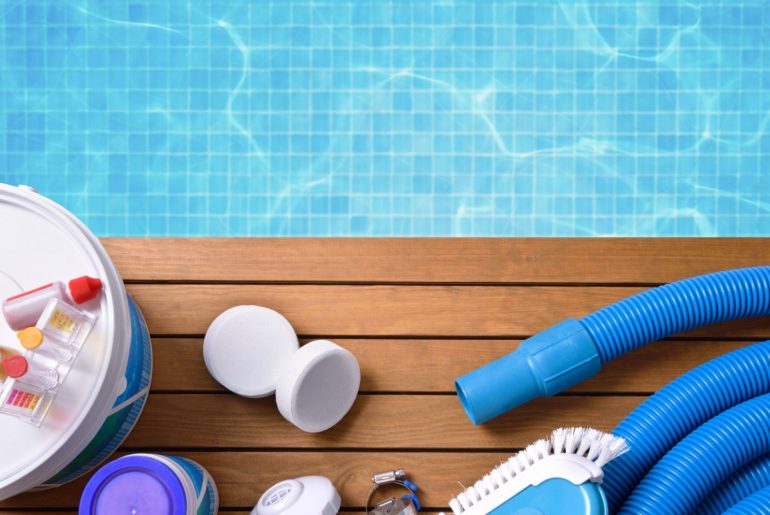Pool service technicians trust various tools because of the wide range of projects they face. They rely on specialty tools like lid wrenches, nets, and vacuum hoses. However, there is a set of tools not geared for the pool industry, which make up a vital component of the toolkit.
This article examines the most vital pool service technician tools to get the job done. You never know when the time is right to use one of these tools, but each one will help take your service skills to a new level.
Chisels
Many pool experts suggest you carry a variety of chisels. You cannot go wrong with stone, wood, metal, and a putty knife. Wood chisels are ideal for scraping calcium from tiles or extracting older gaskets from pumps. Cold steel chisels will help for cutting through bolts or other metals. A masonry chisel is perfect for challenging projects involving chipping or removing tile.
Gloves and Goggles
When you work on various projects as a pool technician, you will likely handle chemicals and other dirty surfaces. An investment in splash-proof goggles will help protect your eyes from contaminants. You could also purchase vented gloves to eliminate fogging. If you want the most effective protection for your hands, we advise you to go with deerskin or goatskin gloves.
Files
Many of today’s pool service tools are plastic, but it is still smart to bring a half-round, 10-inch mill file for metal projects or work. Files are great for handling bronze pump bodies, fixing corroded and bent lids, or cleaning off burrs.
Hammers
Most pool technicians carry a collection of hammers with them, but you could also use a longer block of wood to keep it simple. Hammers are ideal for loosening pump lids or removing steel filter band clamps. Rubber mallets also play a pivotal role in setting filter lid clamps in the right place. They also help you hit anything without bringing the possible damage that a hammer would.
Grooved Joint Pliers
Grooved joint pliers, also known as channel locks, are excellent for grappling and twisting pipes. They are also effective at loosening filter nuts. It would be best for you not to use them when tightening filters or PVC unions, or else you will crack or damage the nut.
Many pool experts recommend bringing different sizes to the work site, including a typical 12-inch pair and a smaller model. The bigger one helps address filter bulkhead fittings, which serve as an alternative to pipe wrenches.
Needle-nose Pliers
Every skilled pool technician needs to carry needle-nose pliers with them, including wire cutters. We recommend bringing two different styles with you. Narrow and long pliers will help reach tight, difficult spaces. The shorter pliers will serve as a good pair of wire cutters.
Needle-nose pliers are one of the best pool service tools for fixing wires onto relays for better tightening. Longer pliers are also an excellent tool for getting rid of leaves in the fall or other debris and hair from the pumps.
Pipe Wrenches
Pipe wrenches, referred to as monkey wrenches, are still worth carrying despite the onset of PVC plumbing and plastic pumps. They are great for larger brass pumps of 1-inch gas lines. It would be best to take a lighter, 24-inch aluminum pipe wrench with ragged jaws at the end.
Screwdrivers
Although the screwdriver is a basic tool, it could be one of the more essential service technician tools in your toolbox. Many professionals carry a few different flat blade sizes and a couple of Phillips options. Screwdrivers are useful for locking screws on motor shafts and pumps. The larger models could serve as a pry bar or chisel.
Skinny screwdrivers are a reliable tool for electrical work, like securing faceplate screws. The smallest screwdrivers will help with interior controller work for the terminals. As you use screwdrivers, you should pay close attention to their reliability. If they start to wear down, you should replace them quicker because the screws could get stripped.
Allen Wrenches
Allen wrenches are critical for brand-specific projects. These wrenches will usually come in a set within a plastic container. Jackknife form is also common, where each wrench folds out individually from the case. There are benefits and drawbacks to each – the jackknife style will keep all wrenches together, but it could be heavier. Sometimes, you may only need one wrench at a time.
PVC Pipe Cutters
PVC pipe cutters are vital for making precise cuts on PVC piping. Frequently, hacksaws will provide you with uneven cuts, so you need to carry this tool with you. Depending on your preference, you can purchase several sizes of PVC pipe cutters.
Wire Brushes
Wire brushes are great for cleaning and addressing brass pumps. It would be smart to go with stainless steel or brass brushes because they will not rust easily. There are also specific brushes available that work on PVC and plastic. These brushes will come with nylon bristles. For plastic jobs, you could also use a toothbrush as a useful tool.
Cordless Drill
If you handle many vinyl liners, you should always carry a cordless drill in your pool technician toolset. It would be best to carry a waterproof cordless or underwater drill to reach these areas. The cordless drill is also convenient because you will not need to worry about reaching a power plug or tripping over wires.
Grinder
Grinders are a reliable pool service technician tool because you run into a lot of plaster and tile throughout the day, which both require extensive grinding. The best investment here is an underwater cordless grinder, but you could always go with a standard diamond blade.
Pool Service Software
In order to stay ahead of the competition, you need your pool service techs to be agile in the field. Pool service software helps you manage your entire business as well as give your pool service techs customer data while out in the field.




![How To Start A Pool Cleaning Business [5 Steps]](https://insights.workwave.com/wp-content/uploads/2021/01/swimming-pool-maintenance-picture-id1132898837-770x515.jpg)